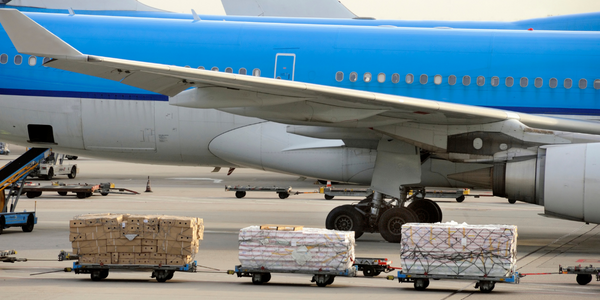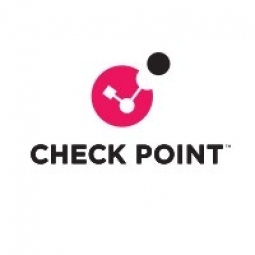Technology Category
- Cybersecurity & Privacy - Cloud Security
- Infrastructure as a Service (IaaS) - Virtual Private Cloud
Applicable Industries
- Glass
- National Security & Defense
Applicable Functions
- Product Research & Development
- Quality Assurance
Use Cases
- Inventory Management
- Tamper Detection
Services
- Cloud Planning, Design & Implementation Services
- Cybersecurity Services
About The Customer
The customer is an American low-cost airline that operates scheduled and charter flights across 120 locations. The airline focuses on delivering affordable air travel while also offering related products, such as hotel rooms and rental cars. With 85 aircraft and 350 scheduled routes across the United States, the airline flies out of 120 airports. Across all of these airports, the airline's IT and information security teams manage network traffic for business-critical systems such as reservations and flight schedules. The airline also develops many of its own internal applications and platforms, with the DevOps team currently working on a new internal flight system application.
The Challenge
The American low-cost airline, operating scheduled and charter flights across 120 locations, faced a significant challenge in securing its virtual desktop infrastructure environment. The airline had previously supplied laptops for staff and deployed physical firewalls at each location. However, because traffic was shared over a common network, any security or network problem at one airport could potentially affect all locations. The infrastructure was not only costly but also difficult to manage consistently. As the threat landscape intensified, the airline’s team wanted to simplify their network design, bring more automation into their releases, and increase their ability to prevent attacks across an increasingly virtualized infrastructure. The airline chose to deploy VMware NSX in their datacenter and implement a virtual desktop infrastructure (VDI) delivered over Internet links to all airports. This move aimed to simplify network management, deliver greater agility, and enable the team to micro-segment traffic with policies specific to each segment for higher resiliency.
The Solution
To secure this dynamic environment, the airline chose Check Point CloudGuard for VMware NSX. Check Point Infinity uses unified threat intelligence and open interfaces to protect the airline's environments against targeted attacks. With Check Point R80.10 Security Management, the team consolidated security management across all network environments into a single pane of glass. Check Point CloudGuard for VMware NSX delivers a multi-layered defensive posture to protect east-west traffic in their VMware-deployed datacenters. CloudGuard transparently enforces security at the hypervisor level and between virtual machines, automatically quarantines infected machines for remediation, and provides comprehensive visibility into all virtual network traffic trends and threats. When the airline deployed Check Point CloudGuard for VMware NSX to secure its VDI environment, Check Point SandBlast network protection was extended to the new infrastructure. The VDI environment’s micro-segments now enable the team to contain any service-affecting problem to only one airport. And they can now micro-segment consistently with micro-permissions from Check Point CloudGuard and the R80.10 management platform.
Operational Impact
Quantitative Benefit

Case Study missing?
Start adding your own!
Register with your work email and create a new case study profile for your business.
Related Case Studies.

Case Study
Data Capture for Afghanistan Forces
Electronic equipments on the field of Afghanistan provided information on the status of the vehicle and to identify potential threats surrounding it to the British Force. The monitoring and interpretation of this data requires robust and sophisticated digitization for data capture and communication.
.png)
Case Study
Discrete Manufacturing Industries (Fiberglass Pipe)
The implementation of ERP software in a Discrete Manufacturing organization needs to be strategic, irrespective of its size and capacity. The client had already implemented an ERP system which fulfilled their requirements but was not efficient enough. Efficiency here meant Synchronized Planning, Updating and Multisite Planning. Planning at client’s place was done outside the ERP system. Lack of proper synchronization to the ERP system paved way to huge delays in the changes getting updated in the system. These delays caused disruption in achieving delivery schedules. Multisite Planning is a solution to an organization which has multiple production units (may or may not be geographically separated) and thus needs planning across these units to synchronize production activities within them. The client also has multiple factories and hence Production Planning control is very essential in their case. Since Multisite planning was not possible with Baan ERP system, this was another bottleneck for the client.

Case Study
Major Aerospace Company Automates Asset Management
The O&M division of an aerospace and global security company was using spreadsheets to manually track more than 3,000 assets assigned to students and staff. Maintaining audit trails for this high volume of equipment became increasingly time-consuming and challenging. The chore involved knowing precisely what equipment was on hand, what had been issued, its location and the name of the custodial owner of each item. Every aspect of this task was carried owner of each item. Every aspect of this task was carried out by individuals with spreadsheets. Manually documenting the full lifecycle of each asset added to the burden. This included tracking maintenance requirements and records, incidents and damages, repairs, calibrations, depreciation, and end-of-life data.

Case Study
Securing a Large Data Center in the EMEA Region: An IoT Case Study
A leading data-center operator in the EMEA region, with multiple facilities spanning over 25,000 square meters, faced significant security challenges. The operator experienced interruptions in their internal IT network due to unsupervised work of third-party technicians. Despite having a high-end building control system that provided 24x7 monitoring and control to all the building’s infrastructure, the data center was vulnerable from a cyber perspective as it was connected to the IT network infrastructure. The operator launched an urgent OT cyber security project that included both IT-OT network segmentation and OT network asset mapping and anomaly detection. The main objectives were to harden the security of the server systems, secure the facility’s power supply and server cooling system, strengthen the segmentation between building and operational systems, create a visual OT network map, and set up a system for presenting supply-chain attacks that may threaten the data center through equipment vendors’ maintenance activities.

Case Study
Enhancing Security Precision with IoT: A Case Study of Guardsman Group
Guardsman Group, a leading security company in the Caribbean, faced a significant challenge in maintaining the security of its digital infrastructure. The company provides security equipment, personnel, and systems for various businesses across the region. However, one of its offices experienced a security incident that affected all communications at that location. The existing security tools were not sufficient to provide the necessary protection, and it took hours to identify the source of the issue. This incident highlighted the need for a dynamic solution that could proactively identify threats. The company's primary concern was any disruption to its business, as it manages a significant portion of Jamaica's money and cannot afford for its operations to go down.

Case Study
Asia Airfreight Terminal Enhances Operational Efficiency with CommScope's RUCKUS Solutions
Asia Airfreight Terminal (AAT), a leading cargo handling company based out of Hong Kong International Airport, was facing challenges with its Wi-Fi network, which was critical for the functioning of its automated Material Handling System (MHS) within the warehouse. Any interference or lost signals could directly impact their operational efficiency. AAT also had separate networks for their office and CCTV cameras, which made the job of their data center challenging. The company was in search of a Wi-Fi network configuration that could streamline their networks and reduce its network management workload. AAT was already running on equipment from a competing vendor, and the new solution needed to prove its worth in scalability and reliability.



